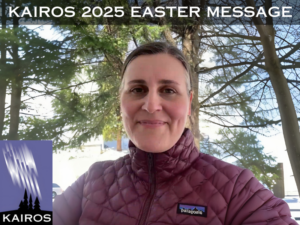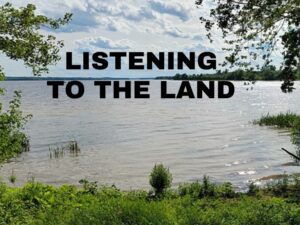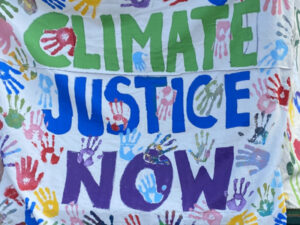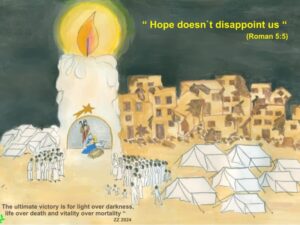On leaving Marrakesh: Reflections on the climate road ahead
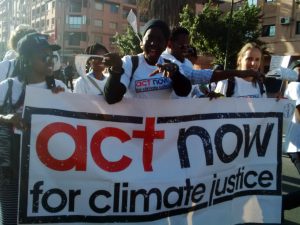
Flying through the labyrinthine alleys of the Medina on a motorbike as the twenty-second session of the Conference of the Parties (COP 22) UN Climate Change Conference came to a close in Marrakesh, Morocco, I found it an apt analogy to the complex and intricate UN process responding to climate change.
At every twist and turn or blind alley, we encountered a huge variety of people, dwellings, riads, and so many forms of transport – from donkey carts to bicycles, small wagons, three-wheelers, skateboards, motos and electric cars, travelling in all directions, struggling to get through the narrow passageways to their destinations. Sharp corners and hairpin turns, bumps and brakes, with no safety helmets, demanding close attention to detail and enormous cooperation – as each respected the others’ right of way to allow for the steady flow of humanity and goods. It was at once terrifying and exhilarating.
It required holding on tight and fully trusting in the driver’s considerable ability to negotiate the complex challenges with skill and enormous patience and determination to successfully navigate the way forward. Mitigating the danger, adapting moment by moment to the changing situation, and realizing the very real possibility of suffering loss and damage was further accentuated as we joined the faster voluminous traffic on the main thoroughfare and careened through the merging flow around Liberty Circle, weaving through the lanes against all odds to arrive at the relative safety of the hotel.
It seemed like a regular experience of a COP.
This may be a curious metaphor, but the urgency of the fast approaching climate crisis can be overwhelming – as can traversing the Medina. So many features and such diverse situations and vehicles for responding to demands of the moment and the needs of the future. It seems like the overarching narrative must be one of purpose and hope to achieve the desired ends – sometimes against intransigent differences of opinion and entrenched imbalanced positions. But the obvious pressure to move forward pushes us all towards trust and faith that it is possible. There is still a long way to go but having agreed to the journey, the process is underway and there is no turning back.
How we navigate the roadmap to 2020 and beyond is what will determine the success of the outcome –
- whether we keep to a 1.5 degrees increase in global temperatures or blow well beyond the carbon budget;
- whether we achieve 100% renewable energy or stick to the same old fossil fuel addiction and continue building more pipelines and pumping more emissions into the atmosphere accelerating climate changes;
- whether we help each other out, especially the most vulnerable in our global community or ignore the suffering of those who are already impacted and often displaced by the ravages of climate catastrophe.
We have to choose. The commitment made in at last year`s COP21 summit in Paris now requires a dedicated implementation – and quickly. We will either be stuck in the Medina, endlessly wandering or we will take the risks with courage to pursue new pathways of making climate justice and peace with the Earth.
It’s time to choose life.
Joy Kennedy, former KAIROS staff, is a long-time member of the World Council of Churches Working Group on Climate Change and has attended many UNFCCC COPs. She works as a consultant on ecological justice, climate change, and resource extraction as moral, ethical, spiritual issues. Previously, she has served in Ecological Justice portfolios with the Canadian Council of Churches, the United Church of Canada, the Anglican Church of Canada, as well as KAIROS. One of the presentations she made at COP22 was based on the recent WCC book she contributed to, Making Peace with the Earth; Action and Advocacy for Climate Justice.









